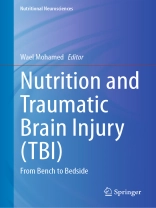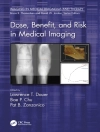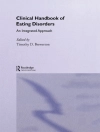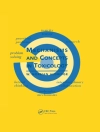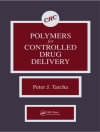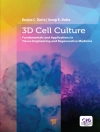The book provides a comprehensive exploration of the relationship between nutrition and traumatic brain injury (TBI). Divided into two sections, the book covers various aspects of TBI, from its biomechanics and pathophysiological changes to evidence-based clinical guidelines and experimental models.
Section I covers the background of TBI, including the definition and biomechanics of TBI, an understanding of pathophysiological changes that occur in the brain, and the importance of evidence-based clinical guidelines for effective TBI management. The section also delves into experimental models of TBI and the role of biomarkers in diagnosing and assessing TBI. Furthermore, it explores early feeding guidelines following TBI, emphasizing the significance of nutrition in the recovery process.
Section II focuses on the connection between nutrition and TBI. It examines the concept of resilience and nutri-protection against TBI prior to the injury, highlighting strategies to enhance the brain’s ability to withstand trauma. The book then explores the role of various nutrients and dietary components in TBI, such as antioxidants, branched-chain amino acids, choline, creatine, ketogenic diet, magnesium, polyunsaturated fatty acids (EPA and DHA), polyphenols, vitamin D, and zinc. Each topic is explored in depth, considering their impact on TBI outcomes and potential therapeutic applications.
Furthermore, this section delves into nutritional interventions for TBI management. It addresses the selection of appropriate nutritional interventions and mechanistic targets for effective treatment. The section also explores the integration of nutrition into clinical practice guidelines for TBI and the emerging field of nutrigenomics, which investigates the interaction between nutrition and the genetic factors involved in TBI. Additionally, the section discusses the role of pharmacognosy in TBI research and provides nutritional recommendations for TBI management, considering the diverse needs of individuals affected by TBI.
The book contributes to advancing the understanding and management of TBI by exploring the background, highlighting the importance of nutrition, and offering insights into nutritional interventions with potential implications for both preventive and therapeutic approaches.
The book is a great resource for students and brain/neuroscience researchers.
Spis treści
1. Defining and Biomechanics of Traumatic Brain Injury.- 2. Probing Traumatic Brain Injury Pathophysiology: Lessons from the Zebrafish Model.- 3. Understanding Pathophysiological Changes of Traumatic Brain Injury.- 4. Nutritional changes in traumatic brain injury.- 5. Resilience and Nutri-protection against Traumatic Brain Injury Prior and Post Injury.- 6. Antioxidants and Traumatic Brain Injury.- 7. Role of Branched-Chain Amino Acids in Traumatic Brain Injury.- 8. Application of Choline for Treatment of Traumatic Brain Injury.- 9. Creatine and TBI.- 10. Magnesium and Traumatic Brain Injury.- 11. PUFAs and Traumatic Brain Injury.- 12. Polyphenols and TBI.- 13. The Relation Between Vitamin D and Traumatic Brain Injury: Possible Mechanisms and Effect on The Severity and Progression.- 14. Zinc and Traumatic Brain Injury: from Bench to Bedside.- 15. 'Polyphenols: The Key to Unlocking Traumatic Brain Injury Rehabilitation’.- 16. Nutritional recommendation for Traumatic Brain Injury management.- 17. Nutritional intervention after severe pediatric traumatic brain injury.- 18. 'Nutritional Support for Mental Health in Traumatic Brain Injury patients’.- 19. Nutrition and Traumatic Brain Injury: Synthesizing Insights from Bench to Bedside.
O autorze
Dr. Wael Mohamed, a Physician Neuroscientist, earned his Ph D from PSU, USA, and presently holds the position of Professor Madya at IIUM Medical School, Malaysia. With over 200 speaking engagements both domestically and internationally, Dr. Mohamed is a seasoned lecturer. He has authored more than 150 peer-reviewed papers in the field of Neuroscience/Psychiatry, boasting an h-index of 23. Additionally, he serves as an editor for several international Journals, having contributed to numerous journal special issues focusing on brain disorders. Furthermore, he is involved in editing several neuroscience books with several publishers. Dr. Mohamed has received research grants from esteemed national and international organizations including IBRO, ISN, MJF, STDF, FRGS, and INDO-ASEAN, totalling half a million US dollars in research funding. He is also the founder of the Afr Abia-PD-Genomic Consortium (AA-PD-GC).
